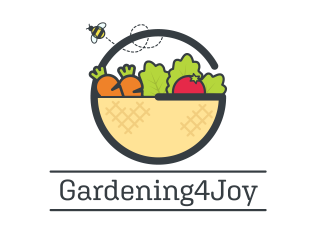What can leaders learn from gardeners about experimentation? Let’s start with a definition of experimentation. Experimentation is trying out new ideas, methods, or activities. In experiments, we test the risk or uncertainty of an outcome. Now, what if, instead of talking about taking a risk, leaders re-framed the discussion and talked about experimentation. When we experiment, there is no such thing as failure or being wrong because we are just ‘experimenting’. How liberating!
Gardeners experiment all the time because nature is in a constant state of change. What worked well in one growing season may not work well in the next season. For me, there is joy in trying new ideas/experiments in my garden. In addition, learning from other gardeners about the ideas/experiments they have tried in their gardens. No two gardens are alike in problems or production and thus the challenge of gardening. Gardening is so fulfilling because gardeners are in a constant state of learning and wanting to learn more. Isn’t that the way we want everyone to feel in the work they perform?
If leaders re-frame the discussion from ‘risk-taking’ to ‘experimenting’, then the culture of the organization can change in the following ways:
A culture of learning
For organizations to grow, learning must be an integral part of the culture. Experimenting is one of the best and easiest ways to learn. We get hands-on experience (proven to be the best learning method) and people get better and faster at iterating and testing ideas. With the pace of change accelerating, we all need this skill. For gardeners, learning is an essential part of each season. I recently read about a gardener with 20 years’ experience. He experimented with a new way to plant seeds. The outcome of his experiment was faster germination. This was an amazing result for him. We need to equally encourage someone with one year or 20 years of experience to be learners and experimenters. Leaders can create this culture of learning through experimentation.
A culture free from failure
Risk-taking in organizations has come to be associated with either success or failure. Because there is a possibility of failure, many risks are not taken or even discussed. By encouraging experimentation, we move the organization away from a culture of fear of failure and offer people the freedom to be wrong.
Because cucumbers are prone to disease, a farmer used experimentation. Instead of trying different methods to eliminate the disease, acceptance that the crop would get this disease and die was the baseline. Therefore, to ensure he had enough cucumbers to sell, he took a different approach to planting. Every few weeks he planted another succession of cucumbers. The result was the new crop started to produce as the old crop was dying. This was a very innovative approach that developed via experimentation and thinking differently. He accepted the failure of the earlier crop.
If leaders encourage more experimentation and allow people to be wrong, then organizations will have higher engagement and morale.
A culture of thinkers
When we experiment, we must set a hypothesis, test that hypothesis and record the results. Therefore, this requires that we think through what we are doing and what we want to accomplish. Begin with the end in mind and develop a clear understanding of where to start and the steps to take toward the destination. Define the expected outcome (hypothesis), how to test that outcome and document the results along the way. This develops critical thinking and planning skills. Let’s look at an example of how a gardener develops their thinking skills by experimenting.
A gardener has a hypothesis that a crop will grow better and produce more if it is covered with row cover during a time when insects are active. The test is to have a set of transplanted crops covered and the exact same crops uncovered (all other environmental factors being constant). The experiment is documented by tracking the growth, the production and the presence or absence of insects.
Experimentation encourages thinking skills and leaders need to provide the time and space for creative thinking.
A culture of cooperation
Stephen Covey wrote in his book “The 7 Habits of Highly Effective People” that “cooperation in the workplace is as important to free enterprise as competition in the marketplace”. In a culture that encourages experimentation, people will naturally want to cooperate. When people experiment, outcomes are clearly defined, and cooperation increases when everyone understands what is expected. Gardeners and farmers are an amazing group because they embody the spirit of cooperation.
Agricultural colleges cooperate with the general public to help solve problems in the garden. Growers cooperate with each other on the experiments they conduct and the results. The common denominator to cooperation is sharing. Leaders can model cooperation by supporting the efforts of other team experiments. When people see leaders cooperating, then overall cooperation will increase.
In summary
I began this article with a quote from Gandhi, “Satisfaction lies in the effort…”. I encourage everyone to experiment and feel the satisfaction (effort) of experimentation. For an organization, experimentation will strengthen organizational capability, increased business success and retain top talent. Good luck!
Here are additional articles on gardening and leadership.






 Please check your email to confirm subscription.
Please check your email to confirm subscription.